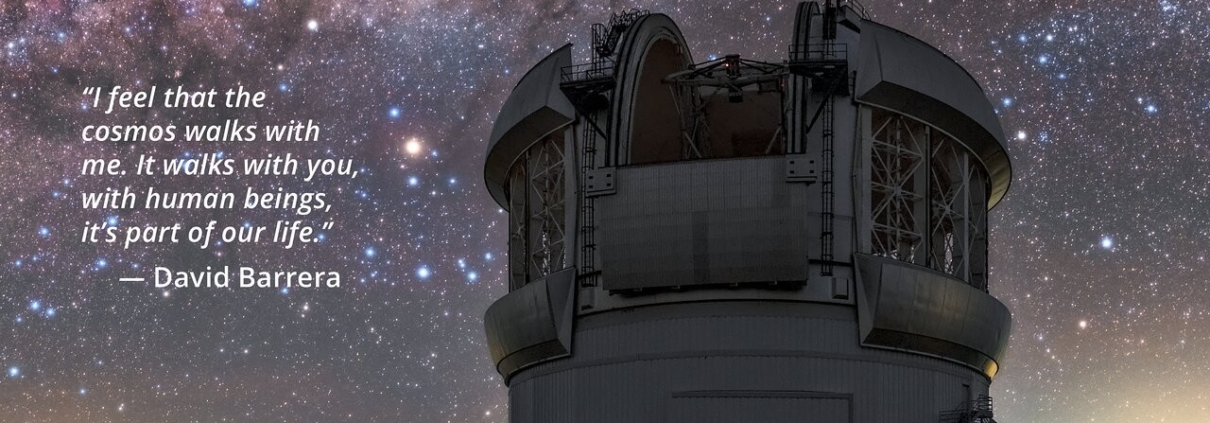Bays Mountain Park showcases the world of Big Astronomy
Bays Mountain Park is pleased to announce its latest planetarium show – Big Astronomy – where viewers are transported to world-class observatories to observe the mystery and splendor of the Universe.
“Big Astronomy” will debut September 1 and continue showing in the Planetarium Theater through December 31. The 45-minute program is being shown Tuesday through Friday at 4 p.m. and on Saturdays and Sundays at 12 p.m. and 4 p.m.
This program will transport viewers to Chile where the dark skies and dry, remote setting create ideal conditions for observing the Universe. Journey to three world-class observatories in Chile’s rugged Andes Mountains and arid Atacama Desert— remote, extreme regions that happen to have the perfect conditions for astronomical research.
Against a backdrop of breathtaking visuals and a hypnotic soundtrack, Big Astronomy introduces the diverse people who push the limits of technology, enable scientific discovery and expand what we know about the Universe using state-of-the-art telescopes. Along the way, you’ll meet an inspiring cast of astronomers, engineers, technicians, and support staff who keep these mega-machines running.
This program will feature a unique look at the night sky from south of the equator utilizing the planetarium’s Zeiss ZKP4 star projector.
“Because the program features observatories located south of the equator, we felt it was a great opportunity to highlight a part of the sky that our visitors may never get a chance to see for themselves,” said Assistant Planetarium Director Jason Dorfman.
The alternate planetarium feature showing Saturdays and Sunday at 2 p.m. through December 31 will be “Appalachian Skies.”
“Appalachian Skies” takes visitors on a majestic tour of the current evening sky using the Zeiss optical star projector. This live presentation is enhanced with additional content from our VELVET LED projectors for a wonderful, immersive experience.
Each presentation is guaranteed to be unique, due to the live nature of the program, and the natural progression of the changing night sky throughout the seasons. Learn what fascinating mythological constellations, from Ancient Greece and other cultures, will be easily visible. Find out what planets are easily seen as well. Visitors will take this knowledge home and be able to locate these celestial sights for themselves.







